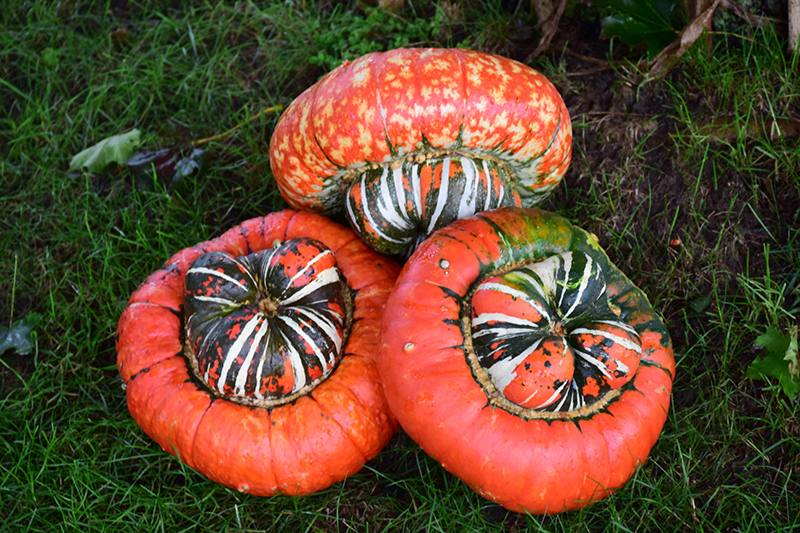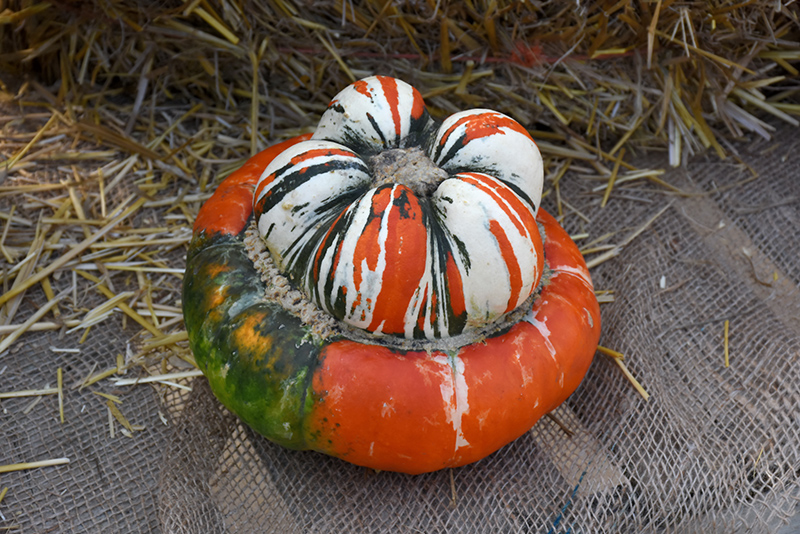Plant Finder
Turks Turban Squash
Cucurbita maxima 'Turks Turban'
Height: 18 inches
Spacing: 24 inches
Sunlight:
![]()
Hardiness Zone: (annual)
Other Names: French Turban
Group/Class: Winter Squash
Description:
A stunning heirloom variety that produces unique looking and delicious squash; bright orange bottoms with dark green streaks, topped with a cap of green and white; sweet and nutty, similar to butternut squash, perfect stuffed and roasted
Edible Qualities
Turks Turban Squash is an annual vegetable plant that is commonly grown for its edible qualities. It produces large orange round fruit with dark green variegation and orange flesh which are typically harvested when mature. The fruit will often fade to scarlet over time. The fruits have a sweet taste and a firm texture.
The fruit are most often used in the following ways:
- Cooking
- Baking
Planting & Growing
Turks Turban Squash will grow to be about 18 inches tall at maturity, with a spread of 5 feet. When planted in rows, individual plants should be spaced approximately 24 inches apart. This vegetable plant is an annual, which means that it will grow for one season in your garden and then die after producing a crop.
This plant is typically grown in a designated vegetable garden. It should only be grown in full sunlight. It does best in average to evenly moist conditions, but will not tolerate standing water. It may require supplemental watering during periods of drought or extended heat. It is not particular as to soil pH, but grows best in rich soils. It is somewhat tolerant of urban pollution. Consider applying a thick mulch around the root zone over the growing season to conserve soil moisture. This is a selection of a native North American species, and it is considered by many to be an heirloom variety.; however, as a cultivated variety, be aware that it may be subject to certain restrictions or prohibitions on propagation.


